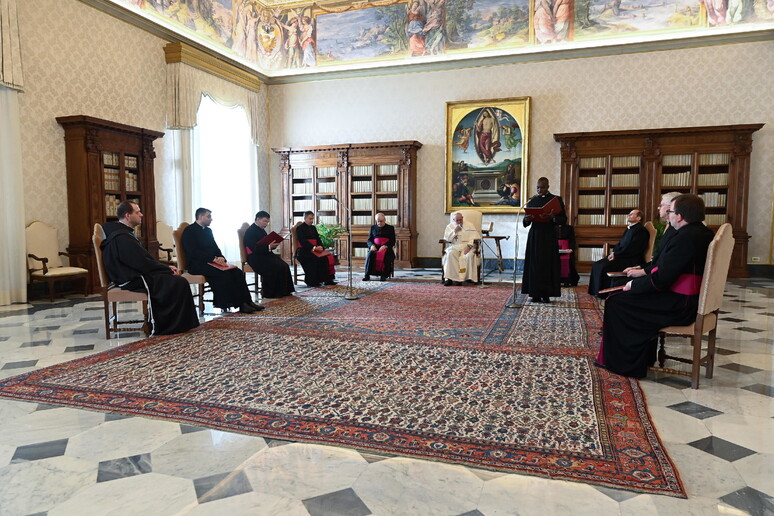The future lies in feeling
fraternal and not dominating others, Pope Francis said at his
weekly general audience on Wednesday.
"In the future of the world and in the hopes of the Church there
are the 'little people': those who do not feel themselves better
than others, who are aware of their limits and sins, who do not
ant to dominate others,, and who in God the Father, recognise
themselves as being all brothers," said Francis in the library
of the Apostolic Palace.
Pope Francis reflected on the dimension of praise in prayer, at
the General Audience, taking as his starting point "a critical
moment in the life of Jesus," Vatican News reported.
At the beginning of His ministry, when He had already begun to
preach the Kingdom of God and perform miracles, "the mission of
the Messiah goes through a crisis," the Pope said: John the
Baptist expresses doubts, while the people to whom He had
preached showed hostility to Jesus and His message.
But "precisely in this disappointing moment," Pope Francis said,
"Jesus does not lift up a lament to the Father, but rather a
hymn of jubilation… in the midst of a crisis, Jesus blesses the
Father, He praises Him."
Jesus praises God for Who He is, calling upon Him as "Father,
Lord of heaven and earth." Jesus acknowledges His Father as Lord
of the universe, and conversely recognizes "the Lord of all that
exists," as His Father. "Praise springs from His experience of
feeling the He is 'Son of the Most High'," the Pope said.
In His prayer, Jesus goes on to praise God "for favouring the
little ones." Pope Francis explained that in His ministry, Jesus
saw those who were considered "wise" and "learned" react to His
preaching with suspicion, while the "little ones" were open to
His message. "This can only be the will of the Father," the Pope
said, "and Jesus rejoices in this. We too must rejoice and
praise God because humble and simple people welcome the Gospel."
Jesus' prayer of praise "in that moment of seeming failure"
leads us to see our own failures in a different light, Pope
Francis continued. He explained that praising God, especially
"when it seems evil prevails and there is no way to stop it," is
necessary, not for God's sake, but for our own.
The Pope cited the catechism, which says that the prayer of
praise "shares in the blessed happiness of the pure of heart who
love God in faith before seeing Him in glory."
Paradoxically, he said, it is not only at times of happiness,
when we feel blessed, but especially "in difficult moments" that
we must praise God - precisely, so that, rising up to God, we
will be able "to see a new panorama, a broader horizon."
Saint Francis, in his Canticle of the Creatures - Laudato sí -
offers an excellent example of praising God in time of
difficulties.
The prayer was composed at the end of Francis' life, when he was
beset by difficulties. Yet in that moment, Pope Francis said,
the saint "praises God for everything, for all the gifts of
creation, and even for death, which he courageously manages to
call 'sister'."
The example of the saints, Pope Francis said in conclusion,
shows us "that we can always give praise, in good times and bad,
because God is the faithful Friend. This is the foundation of
praise: God is the faithful Friend, and His love never fails."
ALL RIGHTS RESERVED © Copyright ANSA











